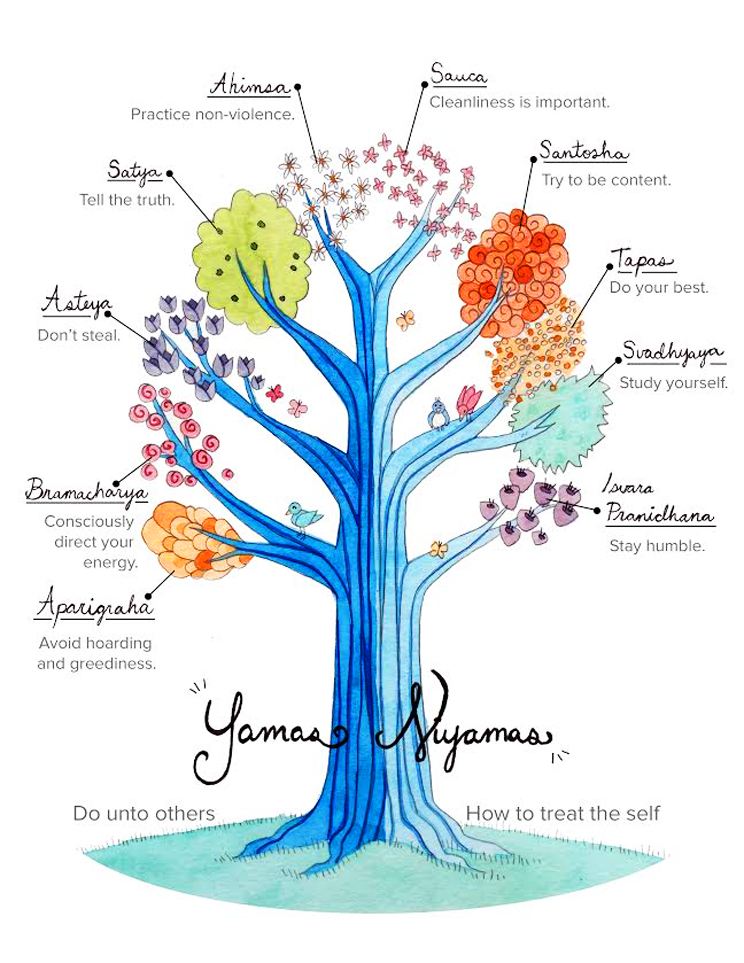
According to a 2012 New York Times article, yoga can damage your back or even kill you. The article was based on cherry-picked tales, and many of the stories were exaggerated. In any case, these stories were not representative of the yoga experience in general. Fortunately, scientists have found that yoga is generally safe. Here are some tips for beginners to yoga.
Yoga has many health benefits. If you have suffered any injury, stop doing yoga. It can lead to other complications such as hemorhoids and can cause pain. These cases should be reported to a doctor and a certified yoga instructor. Find a qualified instructor who can help with issues related to your hips.

Improperly performing yoga poses could lead to serious health problems. For example, if you're recovering from knee surgery, you should check with your doctor before starting a yoga program. Although the poses can sometimes be modified to reduce these risks, it is still a good idea to consult your doctor before you attempt them. Yoga is not recommended for people with lung or heart problems. As with any exercise, the most common problem related to excessive yoga is heartburn.
Avoid yoga for those with severe health problems. Some poses, like Padmasana and Paschimottanasana, can be risky. If you're suffering from knee or disc pain, don't try yoga for these situations. You risk injuring your own body or worse, getting hurt. It is important to practice safely and consistently to avoid this.
Yoga practice offers many benefits but not all of them are worth it. While some poses may cause injury to your knees, they are generally not considered dangerous. It is best to adapt the poses to your health and fitness level. Do not place too much stress upon your knees if arthritis is a concern. Also, they are not recommended for pregnant women or those with high blood pressure.

Yoga is a wonderful way to relieve stress, improve your health and be more positive. However it can be dangerous for certain people. It's not just about reducing your stress, it can cause serious injury. Intensive forms of yoga include standing on your head or stretching your legs. These activities can lead to injury. While most types of yoga are safe and can even improve your quality of life, it's not safe for everyone. Although it's good for your health, some people find it dangerous.
FAQ
How does one know if he/she has a mental illness?
If a person experiences symptoms that affect their daily lives, they may be diagnosed as having a mental disorder. There are many symptoms of mental illness. The most common symptoms are: sadness, anxiety, guilt, hopelessness, loneliness, depressed and confused, worthless or guilty, suicidal thoughts, and feeling sad.
A person can also be diagnosed as having a mental disorder if they fulfill at least three of the criteria listed below.
-
Disturbed thoughts and feelings
-
Disturbed behavior
-
Disturbance in functioning
-
Reduced ability to relate to others
What are some signs of mental-emotional difficulties?
Any condition that causes severe distress or impairment in functioning is considered a mental disorder. Some examples of mental disorder include anxiety, depression, schizophrenia.
Is it possible for me to be depressed?
Teens often struggle with depression. However, it's important to realize that many teenagers struggle with depression.
It doesn't mean you are insane or weak. Many people with depression are unaware of their condition. Depression can be a medical condition.
There are several kinds of depression. Some people feel only sadness. Others experience other emotions. There are also different levels of severity.
Some people are mildly depressed while others experience severe depression. It is important to remember that not all depression is bad. Sometimes, depression helps us to cope with stressful events.
If you are constantly feeling sad, tired, or demotivated, it's a good idea for you to visit a doctor. Your doctor can diagnose you, and help you decide whether treatment is necessary.
What do psychologists say about mental health?
Psychologists believe that mental wellness is an essential component of human development. Psychologists also believe mental health is about more than having no mental illnesses. It's also about being mentally fit.
Different views are held by psychologists about mental health. Some psychologists argue that mental well-being is not important, as there are many people without mental illnesses. Others believe that mental health and functioning properly are essential.
Statistics
- More than 50% will be diagnosed with a mental illness or disorder at some point in their lifetime.3 (cdc.gov)
- Neuropsychiatric diseases are the leading cause of death and disability in the U.S., accounting for 18.7 percent of all years of potential lifespan loss and premature mortality.
- In any given year, an estimated 18.1% (43.6 million) of U.S. adults ages 18 years or older suffered from any mental illness, and 4.2% (9.8 million) (healthypeople.gov)
- More than 40 million adults in the United States have an anxiety disorder, but less than 37% of people seek mental health treatment for their symptoms. (talkspace.com)
- Similarly, while there is some agreement about the boundaries of typical mental disorders 2, there is likely less agreement about those for positive mental health. (ncbi.nlm.nih.gov)
External Links
How To
How to Improve Memory
Memory is one of those things that everyone wants to be able to remember better. Memory loss happens to everyone at some time. More than half of Americans over 65 are affected by some type of dementia.
It doesn't matter if you have Alzheimer's, dementia or another form of cognitive decline. There are lots of options to help improve your memory. These are the three steps that you can take today to improve your memory.
-
Consume More Fruits & Vegetables. Vegetables and fruits are rich in antioxidants, vitamins and minerals as well as fiber and phytochemicals which can boost brain function. They also provide essential nutrients that protect against neurological diseases.
-
Get enough sleep. Sleep deprivation has been linked to poor concentration and memory loss. You should get seven to eight hours sleep each night.
-
Take a walk. Walking increases blood flow to the brain which can improve memory. Walking can help you lose weight, which will make you appear slimmer and healthier.